An online identity study has produced interesting data about Singaporeans and our attitude towards deepfakes.
Published annually by Jumio, an online identity verification company, this study was conducted in March and April 2024 with 8,077 respondents in the US, UK, Mexico, and Singapore to explore consumer awareness and sentiment over online identity and fraud risks, especially the risk that generative AI and deepfakes now pose to everyone.
Deepfake awareness in Singapore has grown
Consumers who worry about deepfakes on a daily basis:
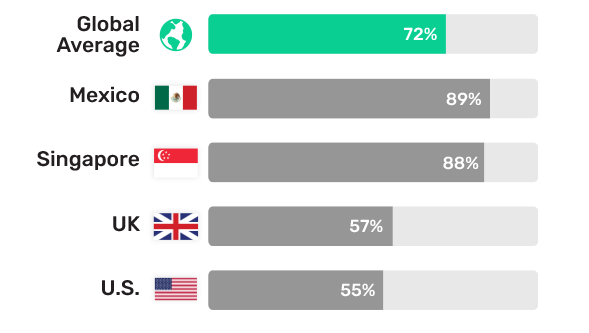
According to this poll, 88% of Singaporeans polled are worried about deepfakes on a daily basis, while 77% of Singaporeans polled were confident they could spot a deepfake (up 24% from 53% in 2023)!
Consumers confident in their ability to spot a deepfake:
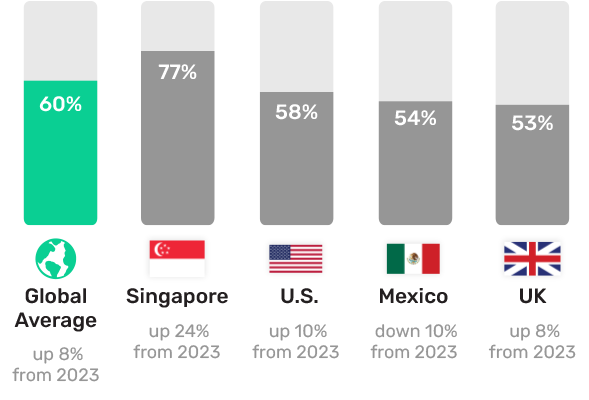
Why this sudden rise in awareness?
We attribute this to the commotion generated in late 2023 by a deepfake scam that used an AI-altered video of then-Deputy Prime Minister, now Prime Minister Lawrence Wong, which raised public awareness about deepfakes in Singapore.
Singaporeans are also aware deepfakes may potentially influence the next election
“Worry about the potential of AI and deepfakes to influence upcoming elections“
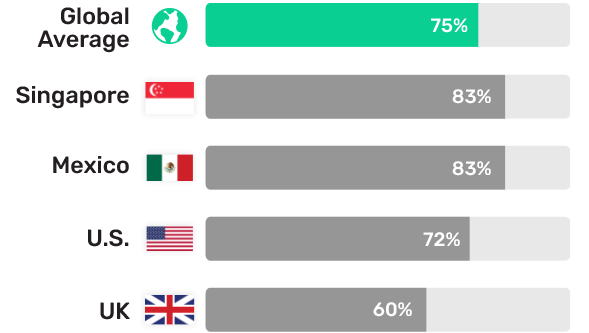
Singapore’s next General Election must be held by November 2025, though analysts have predicted that it may be held instead in September 2024. As the charts show, this impending election has raised our deepfake awareness and scepticism levels.
“Compared to the last election, I will be more sceptical of the political content I see online.”
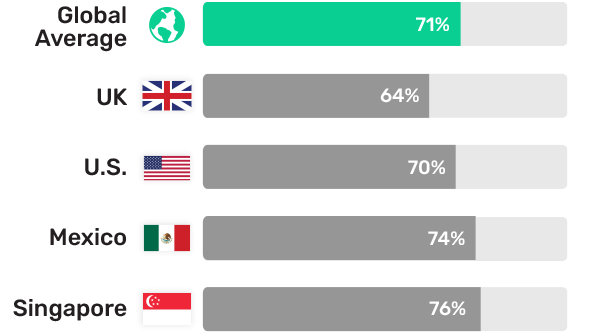
Finally, this study also shows that 66% of Singaporeans polled still trust online political news, though it doesn’t distinguish between an online news portal and a TikTok video.
“I trust political news that I see online, despite the possibility of encountering audio/video/image deepfakes.
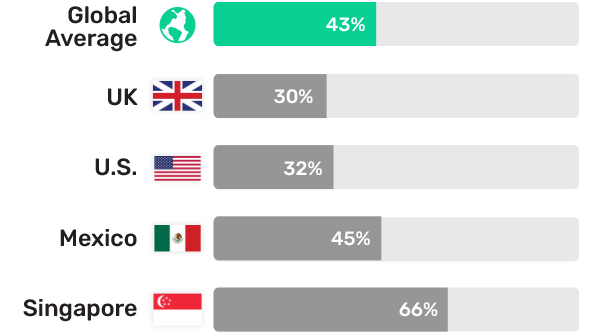
Feature image: Shutterstock
Also read: S$650 million was lost to scams in 2023. Will AI Deepfakes drive this higher in 2024?










